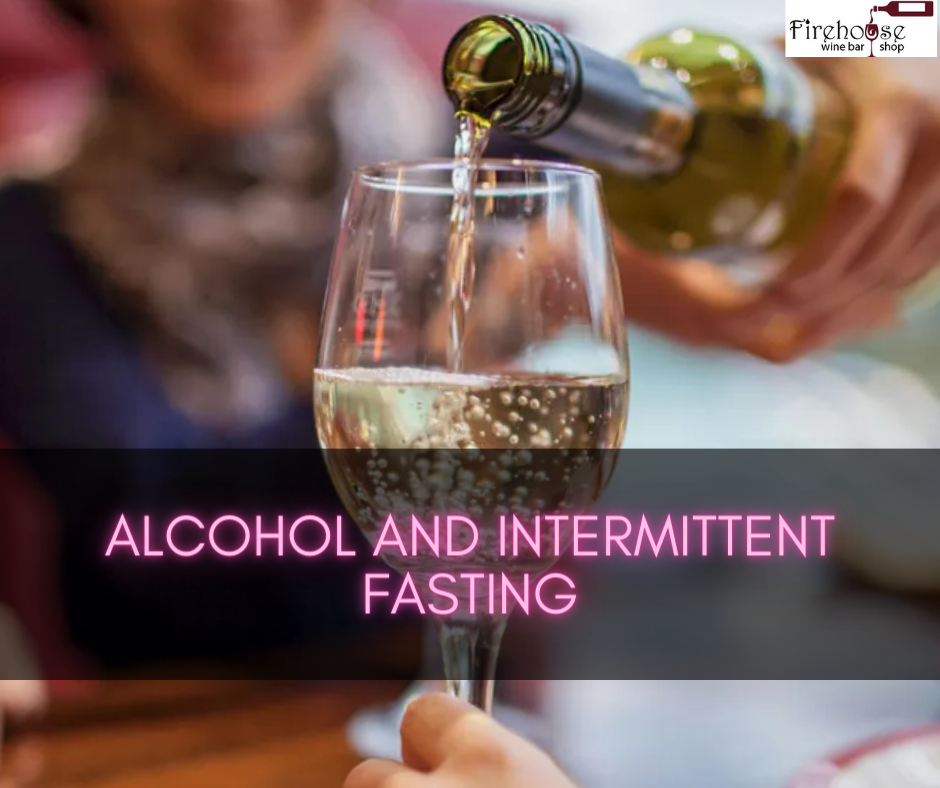Introduction
What Is Intermittent Fasting?
Intermittent fasting is a dietary pattern involving alternating fasting and eating cycles. During fasting, individuals restrict their calorie intake for a specific duration, typically 12 to 24 hours. This fasting window allows the body to access fat stores and promotes weight loss, improved insulin sensitivity, and other health benefits. But can you combine consuming Alcohol and Intermittent Fasting? This blog will help you answer this question.
Effects Of Alcohol On Intermittent Fasting
When it comes to intermittent fasting, consuming alcohol can have several effects and considerations. Firstly, alcohol is a significant source of calories. Even a small amount of alcohol can contribute to your daily calorie intake, potentially breaking your fast and hindering the benefits of fasting. It’s important to remember that the primary purpose of fasting is to give your digestive system a break and allow your body to mobilize stored fat for energy.
Additionally, alcohol consumption can affect blood sugar levels and insulin sensitivity. Studies have shown that alcohol can lead to a decline in blood sugar levels, potentially causing hypoglycemia or low blood sugar. This can impact your energy levels and overall well-being during fasting.
Another concern is that alcohol hampers fat breakdown. While intermittent fasting can enhance fat loss, alcohol intake disrupts this process by preventing the breakdown of fats for energy utilization. This means that even if you are fasting, the alcohol you consume will be metabolized first, delaying the release of stored fat.
Experts suggest that if you choose to drink alcohol while intermittent fasting, it’s crucial to opt for drinks that are lower in calories and have fewer carbohydrates. Clear spirits like vodka or gin with soda water can be better than sugary cocktails or beer. However, moderation is key, as excessive alcohol consumption can have detrimental effects on your overall health.
In conclusion, although it is possible to drink alcohol while intermittent fasting, it’s important to be mindful of the type and amount consumed. Alcohol breaks the fast by providing empty calories and inhibiting fat breakdown. Suppose you decide to include alcohol in your intermittent fasting routine. In that case, it’s best to choose lower-calorie options and drink in moderation to minimize the potential negative impacts on your fasting goals and overall health.

How Alcohol Affects Intermittent Fasting
Impact On Insulin And Glucose Levels
Alcohol consumption during intermittent fasting can have a significant impact on insulin and glucose levels. When you consume alcohol, your body prioritizes metabolizing it over other processes, including fat burning. This can lead to decreased blood glucose levels, which may cause hypoglycemia or low blood sugar. Hypoglycemia can leave you tired and lightheaded and may negatively affect your well-being during fasting. It’s important to be mindful of this potential impact, especially if you have underlying health conditions or concerns about blood sugar control.
Disruption Of Ketosis
Intermittent fasting promotes ketosis, a metabolic state in which your body uses stored fats for energy instead of carbohydrates. However, consuming alcohol can disrupt this process. When alcohol is present in your system, your body prioritizes breaking it down, leading to a temporary halt in fat burning. This delay in fat breakdown can hinder your progress toward weight loss and may decrease the overall metabolic benefits of intermittent fasting. It’s important to be aware of the potential impact of alcohol on ketosis and consider this when incorporating alcohol into your fasting routine.
In conclusion, alcohol consumption during intermittent fasting can have various effects on insulin, glucose levels, and ketosis. It’s important to be aware of these impacts and make informed choices when incorporating alcohol into your fasting routine. Choosing lower-calorie options, consuming alcohol during your eating window, and drinking in moderation are some strategies to minimize the potential negative effects. Always prioritize your health and consult with a healthcare professional if you have any concerns or questions about alcohol and intermittent fasting.
Tips For Combining Consuming Alcohol and Intermittent Fasting
Choose Lower-calorie Alcoholic Beverages
When combining consuming Alcohol and Intermittent Fasting routine, it’s important to choose lower-calorie options. Some alcoholic beverages, such as beer and mixed drinks, can be high in sugar and calories, which can hinder your weight loss goals during fasting. Opting for lighter options like dry wines, spirits with low-calorie mixers, or light beers can help minimize the caloric impact while allowing you to enjoy an occasional drink. Be mindful of added sugars and mixers, as they can increase the calorie content of your drink.
Time Your Alcoholic Drinks Wisely
Timing is crucial when it comes to incorporating alcohol into your intermittent fasting routine. It’s best to consume alcohol during your eating window rather than during your fasting period. This way, your body can prioritize alcohol metabolism and minimize interference with your fasting goals. Additionally, it’s important to allow your body enough time to recover from the effects of alcohol before entering the fasting state again. Planning your alcohol consumption strategically can help minimize the negative impact on your fasting goals and overall health.
Stay Hydrated And Nourished
Alcohol can be dehydrating, so it’s essential to stay hydrated while consuming alcoholic beverages during intermittent fasting. Make sure to drink plenty of water before, during, and after consuming alcohol to mitigate dehydration. Additionally, nourishing your body with nutrient-dense foods during your eating window is important. Focus on consuming foods that support your overall health and provide essential nutrients to compensate for any potential nutrient deficiencies due to alcohol consumption.
Listen To Your Body
Each individual’s tolerance to alcohol and its effects during intermittent fasting can vary. It’s essential to listen to your body and pay attention to how alcohol consumption affects your fasting routine and overall well-being. If you notice any negative effects, such as disrupted sleep, decreased energy, or difficulty maintaining your fasting schedule, it may be necessary to limit or avoid alcohol altogether. Always prioritize your health and well-being and adjust your fasting routine as needed.
Incorporating alcohol into your intermittent fasting routine can be done with careful consideration and moderation. By choosing lower-calorie options, timing your drinks wisely, staying hydrated and nourished, and listening to your body, you can find a balance that allows you to enjoy the occasional drink while still reaching your fasting goals.

Potential Concerns And Risks
Increased Caloric Intake And Weight Gain
While combining consuming Alcohol and Intermittent Fasting, it is important to be aware of the potential risks and concerns. One primary concern is the increased caloric intake and the potential for weight gain. Alcohol itself is calorie-dense, and consuming it in excess can lead to consuming more calories than your body needs, which can hinder your weight loss goals during fasting.
Certain alcoholic beverages, such as mixed drinks and beer, can be especially high in sugar and calories. These drinks often contain added sugars and mixers that can significantly increase the calorie content. To mitigate this risk, choosing lower-calorie options such as dry wines, spirits with low-calorie mixers, or light beers is recommended. Being mindful of added sugars and mixers can help minimize the caloric impact while allowing you to enjoy an occasional drink.
Impaired Judgment And Decision Making
Another concern when combining consuming alcohol with intermittent fasting is the potential for impaired judgment and decision-making. Fasting can lower your alcohol tolerance and make you more susceptible to the effects of alcohol. This means that even a smaller amount of alcohol than usual can have a stronger impact.
Impaired judgment and decision-making can make it difficult to stick to your fasting routine and make healthy choices. It may lead to indulging in unhealthy foods or breaking your fasting window altogether. Therefore, it is crucial to plan your alcohol consumption wisely and avoid excessive drinking. Timing your drinks during your eating window allows your body to prioritize alcohol metabolism and minimize interference with your fasting goals.
Additionally, it is important to listen to your body and pay attention to how alcohol consumption affects your fasting routine and overall well-being. If you notice any negative effects, such as disrupted sleep, decreased energy, or difficulty maintaining your fasting schedule, it may be necessary to limit or avoid alcohol altogether.
In conclusion, while alcohol can be incorporated into intermittent fasting, it is essential to be mindful of the potential risks and concerns. By choosing lower-calorie options, timing your drinks wisely, and listening to your body, you can find a balance that allows you to enjoy the occasional drink while still reaching your fasting goals.
Moderation And Balance In Alcohol Consumption
When it comes to combining consuming Alcohol and Intermittent Fasting routine, moderation and balance are key. Setting limits for alcohol intake and finding the right balance between enjoyment and health goals is crucial for a successful fasting journey.
Setting Limits For Alcohol Intake
To maintain your fasting routine and prevent any negative effects on your health and well-being, it is important to set limits for alcohol consumption. The amount of alcohol you can consume while fasting will depend on various factors, including your tolerance and overall health.
It is generally recommended to consume alcohol in moderate amounts and only during your designated eating periods. This approach allows your body to prioritize alcohol metabolism without interfering with the benefits of fasting. Dry wines and hard spirits are healthier due to their lower sugar and calorie content than mixed drinks and sweeter wines.
However, it’s important to note that alcohol is calorie-dense and can slow down fat burning. Excessive drinking can also promote chronic inflammation and other health issues. Therefore, drinking responsibly and being mindful of the potential impact on your fasting goals is essential.
Balancing Enjoyment And Health Goals
Finding a balance between enjoying an occasional drink and staying aligned with your health goals can be challenging. It’s crucial to be aware of the potential risks and concerns associated with alcohol consumption during intermittent fasting.
One of the primary concerns is the increased caloric intake and the potential for weight gain. Certain alcoholic beverages, such as mixed drinks and beer, are high in sugar and calories. To minimize the caloric impact, choosing lower-calorie options like dry wines, spirits with low-calorie mixers, or light beers is recommended.
Another concern is impaired judgment and decision-making. Fasting can lower your alcohol tolerance, making you more susceptible to the effects of alcohol. This can compromise your ability to stick to your fasting routine and make healthy food choices. Planning your alcohol consumption wisely, timing your drinks during your eating window, and avoiding excessive drinking can help mitigate this risk.
It’s crucial to listen to your body and pay attention to any negative effects that alcohol consumption may have on your fasting routine and overall well-being. If you experience disrupted sleep, decreased energy, or difficulty maintaining your fasting schedule, it might be necessary to limit or avoid alcohol altogether.

Other Considerations For Alcohol And Intermittent Fasting
Individual Tolerance And Sensitivity To Alcohol
Individuals may have varying degrees of tolerance and sensitivity to alcohol, which can affect their ability to incorporate it into their intermittent fasting routine. Some people may find that even a small amount of alcohol disrupts their fasting schedule or results in undesirable effects such as disrupted sleep or digestive issues. It’s important to listen to your body and pay attention to how alcohol affects you personally.
Factors such as body weight, metabolism, and overall health can influence your alcohol tolerance. It’s essential to be mindful of these factors when deciding how much and when to consume alcohol during your fasting window. If you notice any negative effects or challenges in maintaining your fasting routine after consuming alcohol, it may be necessary to reduce or eliminate alcohol intake.
Consulting With A Healthcare Professional
If you have any specific concerns or questions about incorporating alcohol into your intermittent fasting routine, it’s always advisable to consult with a healthcare professional. They can provide personalized guidance based on your health status and goals.
A healthcare professional can evaluate any potential risks or interactions between alcohol and any medications you may be taking. They can also help you determine the most suitable approach for incorporating alcohol into your intermittent fasting plan while considering factors such as your overall health, alcohol tolerance, and fasting goals.
Remember, the information provided here is general and may not apply to everyone. It’s important to seek individualized advice from a healthcare professional familiar with your medical history who can offer tailored recommendations.
In conclusion, while alcohol can be enjoyed in moderation during intermittent fasting, it’s crucial to be mindful of individual tolerance and sensitivity. Listening to your body, setting limits for alcohol intake, and consulting with a healthcare professional can help ensure that alcohol consumption aligns with your fasting goals and overall health. By being aware of these considerations, you can navigate the balance between intermittent fasting and alcohol consumption successfully.
Common Misconceptions About Alcohol And Intermittent Fasting
You Can’t Drink Alcohol While Fasting.
While it is true that consuming alcohol during your fasting window will break your fast, it doesn’t mean that you can’t enjoy a drink while intermittent fasting. The key is to be mindful of your intake and the timing of your alcohol consumption. If you plan to have a drink, it’s best to do it during your eating window or at the end of your fasting period to minimize any negative effects on your fasting results.
Alcohol Won’t Affect Your Fasting Results.
Contrary to this belief, alcohol can indeed impact your fasting results. Alcohol is metabolized differently in the body compared to other nutrients, and it can interrupt important metabolic processes such as fat breakdown. Additionally, alcohol is calorie-dense, containing seven calories per gram, which can hinder weight loss efforts during fasting.
It’s important to be aware of the potential drawbacks of alcohol consumption during intermittent fasting. Alcohol can disrupt sleep, interfere with digestion, and hinder fat burning. It can also increase cravings and lead to overeating during your eating window.
To minimize the negative effects of alcohol on your fasting results, consider these tips:
- Moderation is key: Limit your alcohol intake to occasional celebrations or special occasions rather than making it a regular part of your fasting routine.
- Opt for lower-calorie options: Choose drinks with lower calories and sugar content. Avoid sugary mixed drinks and opt for light beers, dry wines, or spirits mixed with soda water or low-calorie mixers.
- Stay hydrated: Alcohol can dehydrate the body, so make sure to drink plenty of water before and after consuming alcohol to stay hydrated.
- Listen to your body: Pay attention to how alcohol affects you personally. If you notice any negative effects or challenges in maintaining your fasting routine after consuming alcohol, adjust your intake accordingly.
It’s always a good idea to consult with a healthcare professional or nutritionist before incorporating alcohol into your intermittent fasting plan. They can provide personalized guidance based on your individual goals and health status.
In conclusion, while it is possible to enjoy alcoholic beverages during intermittent fasting, it’s crucial to be mindful of your intake and the potential impact on your fasting results. Moderation and awareness of how alcohol affects your body are key to maintaining a successful balance between intermittent fasting and alcohol consumption.
Conclusion
Now you should know the relationship between Alcohol and Intermittent Fasting. While it is possible to enjoy alcoholic beverages during intermittent fasting, it is important to approach it with caution and mindful awareness. Alcohol can interfere with the metabolic advantages, hormonal balance, and overall health benefits that fasting offers. However, with proper planning and moderation, you can still find a balance between intermittent fasting and alcohol consumption.
Finding A Personalized Approach To Alcohol And Intermittent Fasting
When it comes to finding a personalized approach to alcohol and intermittent fasting, it’s essential to listen to your body and understand how it affects you individually. Some people may find that alcohol hinders their fasting routine and goals, while others may be able to enjoy it in moderation without significant consequences. It’s crucial to pay attention to the signals your body sends and adjust your alcohol intake accordingly.
Making Informed Choices For Optimal Health And Well-being
To ensure optimal health and well-being while practicing intermittent fasting and enjoying occasional alcoholic beverages, here are some key points to consider:
- Plan: If you know you’ll be having alcohol, schedule it during your eating window or at the end of your fasting period to minimize any negative effects on your fasting results.
- Moderate your intake: Limit your alcohol consumption to occasional special occasions rather than making it a regular part of your fasting routine. Set boundaries and stick to them to ensure you’re not overindulging.
- Choose lower-calorie options: Opt for drinks with lower calories and sugar content. Avoid sugary mixed drinks and opt for light beers, dry wines, or spirits mixed with soda water or low-calorie mixers.
- Stay hydrated: Alcohol can dehydrate the body, so make sure to drink plenty of water before and after consuming alcohol to stay hydrated. This can also help prevent hangovers.
- Seek professional guidance: Consulting with a healthcare professional or nutritionist can provide personalized guidance based on your goals and health status. They can help you find the optimal balance between intermittent fasting and alcohol consumption.
By making informed choices and being mindful of your alcohol intake, you can still enjoy the occasional drink while reaping the benefits of intermittent fasting. Remember, moderation is key, and finding what works best for your body and goals will ultimately lead to long-term success in fasting and overall well-being.
FAQ: Alcohol and Intermittent Fasting: Tips and Concerns
Q: Can I combine consuming Alcohol and Intermittent Fasting?
A: Yes, you can still enjoy alcohol while practicing intermittent fasting. However, consuming it in moderation and only during your designated eating periods is important.
Q: What types of alcohol are best to consume during intermittent fasting?
A: When choosing alcoholic beverages, opting for drier wines and hard spirits is recommended. These options have fewer calories and sugar than mixed drinks and sweeter wines.
Q: How much alcohol can I consume during intermittent fasting?
A: It is advised to limit your alcohol intake to moderate amounts during your eating periods. This means avoiding excessive consumption and being mindful of your calorie intake.
Q: Will drinking alcohol hinder the benefits of intermittent fasting?
A: When consumed in moderation and only during eating periods, alcohol is unlikely to impede the benefits of intermittent fasting. However, it is worth noting that alcohol is calorie-dense and can potentially slow down fat burning.
Q: Are there any health concerns associated with drinking alcohol during intermittent fasting?
A: Excessive drinking can promote chronic inflammation and may lead to other health issues. Therefore, it is important to be mindful of your overall alcohol consumption and prioritize moderation.
Q: Can I drink alcohol during the fasting periods of intermittent fasting?
A: It is recommended to refrain from consuming alcohol during the fasting periods of intermittent fasting. Fasting gives your body a break from caloric intake, and alcohol contains calories.
Q: Can alcohol affect the effectiveness of intermittent fasting for weight loss?
A: Consuming alcohol can potentially hinder weight loss progress during intermittent fasting due to its calorie content. Calories from alcohol are generally not as satiating as calories from food, which may lead to overeating or derailing your fasting goals.
Q: How can I balance alcohol consumption and intermittent fasting?
A: To strike a balance, be mindful of your alcohol intake, opt for healthier options, and limit drinking to your designated eating periods. It’s also essential to prioritize overall health and weight loss goals by maintaining a well-balanced diet and regular exercise routine.
Remember, it is always important to consult with a healthcare professional or registered dietitian if you have specific concerns or medical conditions related to alcohol consumption and intermittent fasting.

Andre Lotz immigrated to the United States from South Africa almost 20 years ago. Still, he didn’t feel truly at home until he settled in Mobile—a city that reminds him of his childhood home of Fish Hoek on the southern cape of Africa.

